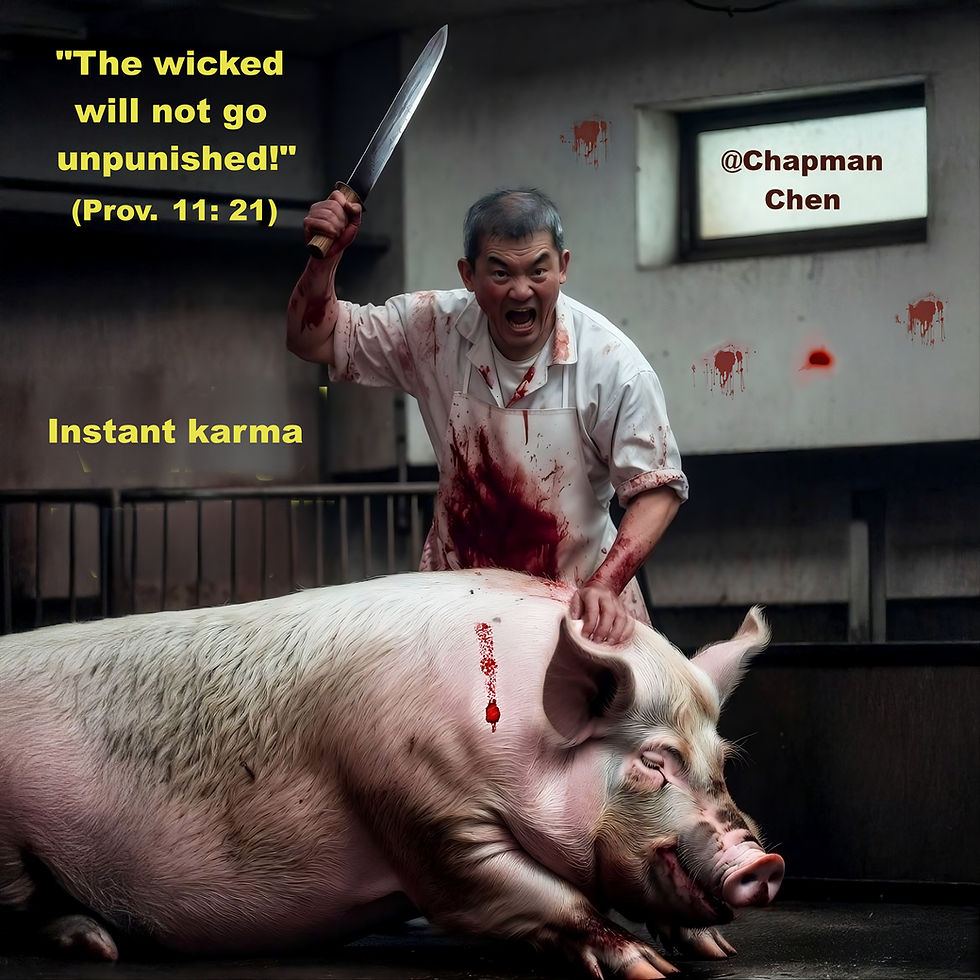“God Nurtures Even Worms and Ants!” ~ Saint Catherine of Siena. Ed. Dr. Chapman Chen
- Chapman Chen

- May 19, 2025
- 2 min read

In her major work, The Dialogue, Saint Catherine of Siena (1347-1380), compassionately asserts:-
“How can people see me [God] feeding and nurturing the worm within the dry wood, pasturing the brute beasts, nourishing the fish in the sea, all the animals on earth and the birds in the air, commanding the sun to shine on the plants and the dew to fertilize the soil, and not believe that I nourish them as well, my creatures made in my image and likeness? As a matter of fact, all this is done by my goodness to serve them. No matter where they turn, spiritually and materially they will find nothing but my deep burning charity and the greatest, gentle, true, perfect providence.” (Catherine of Siena 1980, 290)
This passage refutes many a theologian’s argument that only humans are made in the image of God and thus entitled to (ab)use other animals for food, labour, etc. It also echoes Jesus’ saying, “Whatever you did for one of these least brothers of mine, you did for me!” (Matt. 25:40 New American Bible).
Saint Catherine of Siena was a Dominican tertiary, mystic, theologian, and Doctor of the Church, born in Siena, Italy, in 1347. Despite having no formal education, she became one of the most influential figures in medieval Catholicism, renowned for her spiritual writings, political interventions, and mystical visions. Her principal work, The Dialogue, documents profound conversations between her soul and God. She was the patron saint of Europe, Italy, nurses, and those ridiculed for their piety. She was canonised in 1461 and her feast day is April 29.
Catherine embraced extreme asceticism and refused to consume animal flesh for most of her adult life. While not vegan by modern standards, her commitment to nonviolence and abstention from flesh aligns her closely with what we might today call a proto-vegan ethic—rooted not in health concerns but in spiritual discipline and compassion.
Her avoidance of animal products was part of a broader renunciation of worldly pleasure and was aimed at identifying with the suffering of Christ and the poor. There is also reason to believe her restricted diet reflected a desire not to contribute to the killing of God’s innocent creatures. #VeganChrist #VeganGod #VeganChurch #VeganTheology
Source:
Catherine of Siena (1980). Catherine of Siena: The Dialogue. Trans. Suzanne Noffke. New York: Paulist Press. https://archive.org/details/trent_0116404038832/page/290/mode/2up?view=theater&q=worm
P.S. “These tiny ants have proceeded from His thought just as much as I. It caused Him just as much trouble to create the angels as these animals and the flowers on the trees.” While this quote is widely attributed to Saint Catherine and aligns with her theological views on the intentionality of God's creation, it does not appear verbatim in her major works such as The Dialogue or her collected letters. Thus, the quote is likely a paraphrase or a thematic summary of her views rather than a direct citation.





Comments